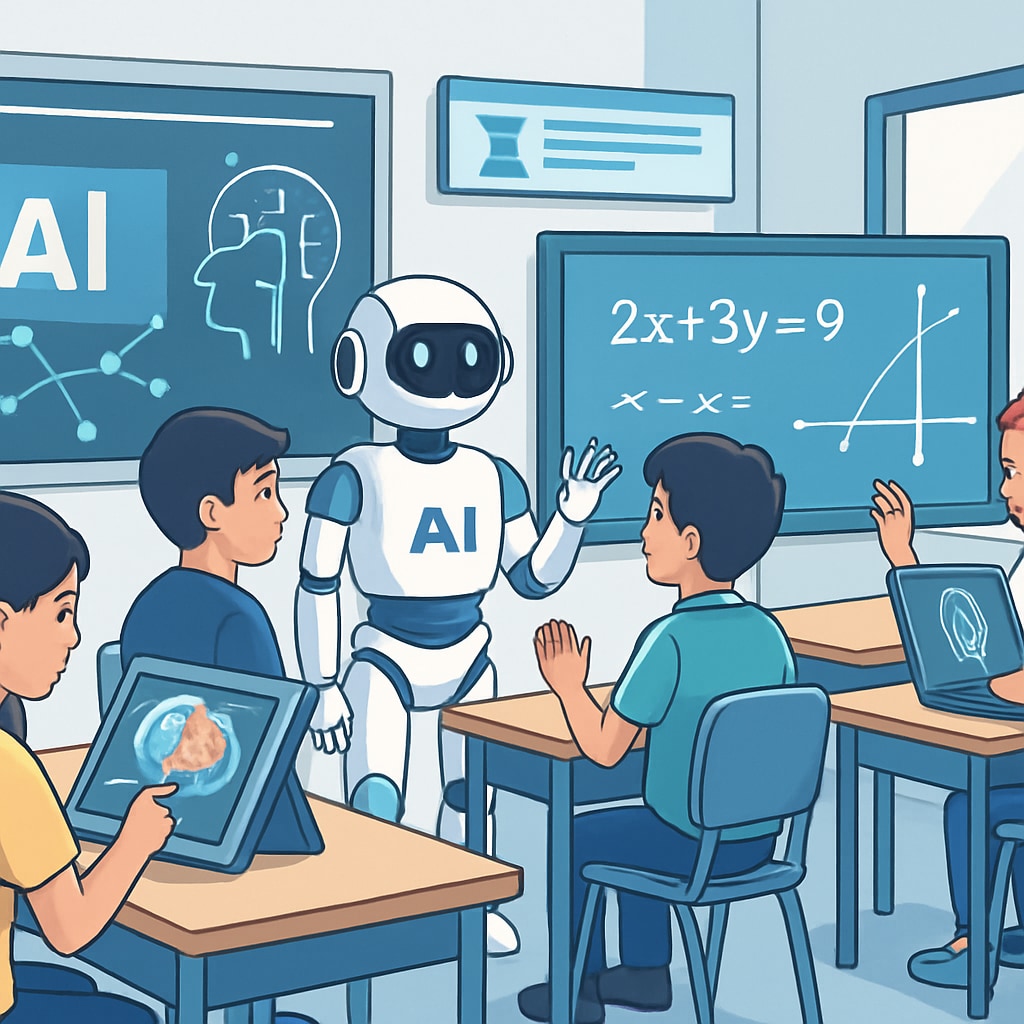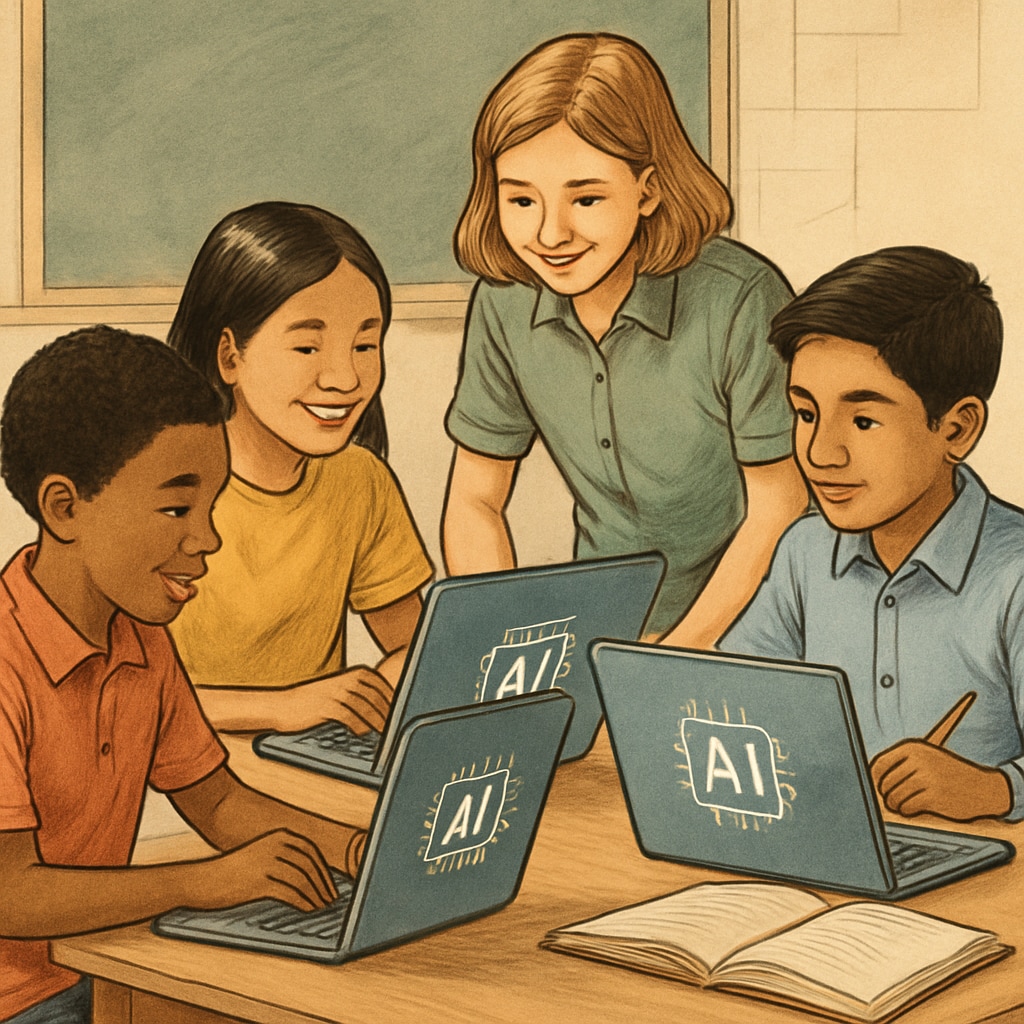The integration of artificial intelligence (AI) is revolutionizing K12 education, steering it toward a future characterized by personalization, adaptability, and global accessibility. As AI education solutions continue to evolve, they are addressing critical challenges presented by globalization, demographic shifts, and the changing nature of work. This article delves into education future trends and provides a comprehensive outlook on how AI will reshape the 2030 education landscape.
How AI is Transforming K12 Education Today
AI has already begun to make a significant impact on K12 education by introducing tools and technologies that enhance both teaching and learning. For example, AI-driven learning platforms such as adaptive learning software can assess individual student performance in real-time and tailor content to meet their unique needs. This personalization ensures that students receive targeted support, maximizing their learning potential.
Moreover, AI is empowering teachers by automating repetitive tasks like grading and administrative work, allowing them to focus on more strategic activities such as mentoring and curriculum development. AI-powered tools like chatbots and virtual assistants are also improving communication between educators, students, and parents, ensuring a more connected and efficient learning ecosystem.

Education Future Trends: What to Expect by 2030
As we approach 2030, the role of AI in education is expected to expand significantly, ushering in transformative changes across the K12 sector. Below are some of the key trends that will shape the future of education:
- Personalized Learning at Scale: AI will enable hyper-personalized learning paths, where each student receives a unique curriculum tailored to their strengths, weaknesses, and learning styles.
- AI Tutors and Mentors: Virtual AI tutors will provide on-demand assistance, making high-quality education accessible to students regardless of their location or socioeconomic background.
- Global Classrooms: AI-powered language translation tools will facilitate seamless communication, allowing students from different linguistic backgrounds to collaborate and learn together.
- Skill-Based Learning: With the workforce increasingly prioritizing skills over traditional credentials, AI will help align education with industry needs by identifying skill gaps and tailoring content accordingly.
In addition, ethical considerations surrounding AI deployment in education, such as data privacy and algorithmic bias, will become critical areas for policymakers and educators to address.

The 2030 Education Landscape: A New Paradigm
By 2030, traditional education models are likely to be redefined. Instead of a one-size-fits-all approach, education systems will prioritize flexibility, inclusivity, and lifelong learning. AI will play a central role in this transformation by creating adaptive learning environments that respond dynamically to individual and collective needs.
Furthermore, the integration of AI with other emerging technologies, such as augmented reality (AR) and virtual reality (VR), will make learning more immersive and interactive. For example, students could use VR to explore historical events or scientific phenomena in a highly engaging, hands-on manner.
Collaboration with industry partners will also be vital in ensuring that education evolves alongside technological advancements. Initiatives that combine AI with practical, real-world applications will prepare students for the jobs of the future, many of which may not yet exist.
However, for these advancements to be successful, equitable access to AI-driven tools must be prioritized. Bridging the digital divide will require concerted efforts from governments, private organizations, and educational institutions.
Conclusion: Preparing for the AI-Driven Future
As AI continues to reshape the education landscape, it offers unprecedented opportunities to transform how students learn and how educators teach. By embracing these technologies thoughtfully and ethically, we can create a 2030 education system that is personalized, adaptive, and globally inclusive. The journey toward this new paradigm will require collaboration, innovation, and a commitment to equitable access for all.
The future of education is not only about integrating technology but also about reimagining the role of educators and learners in a world increasingly driven by AI. As we move forward, the challenge will be to harness AI’s potential while ensuring that the human aspect of education remains at its core.
Readability guidance: The article employs concise paragraphs and bullet points to enhance readability. Active voice is favored, and transition words are used to ensure smooth flow. Images are strategically placed to complement the text, and external sources provide additional credibility.


